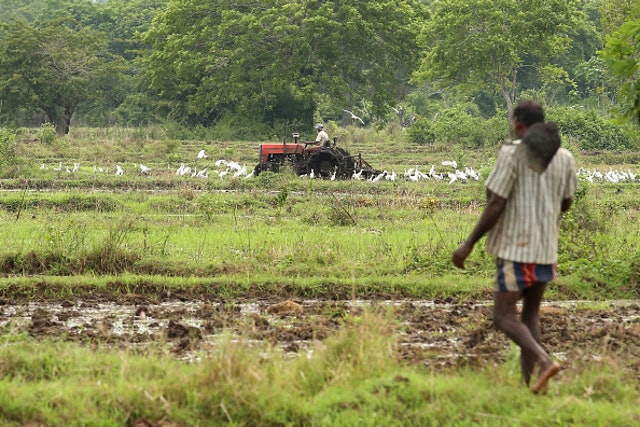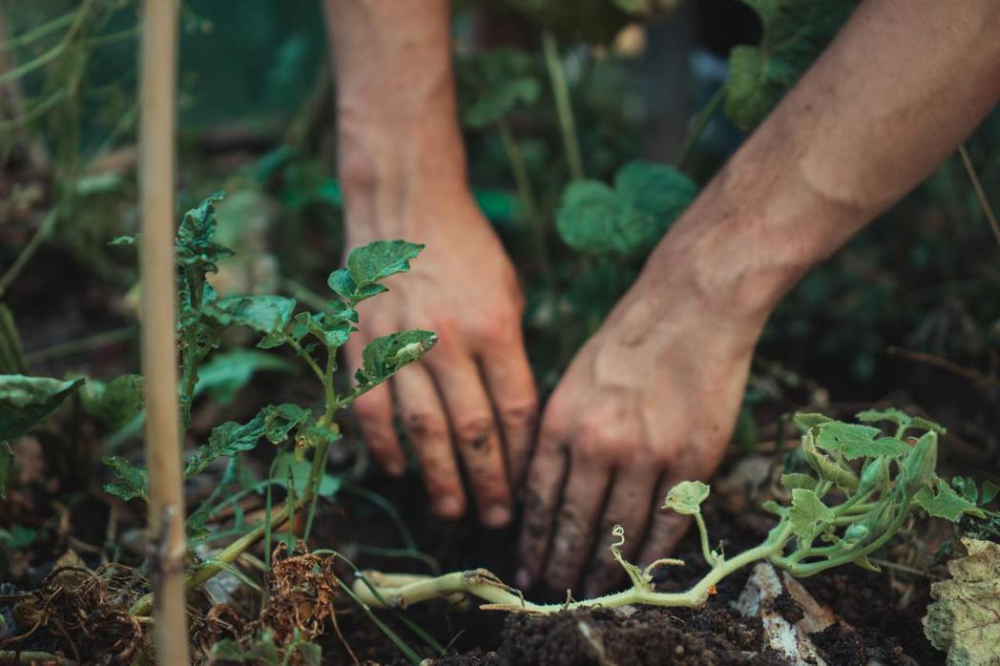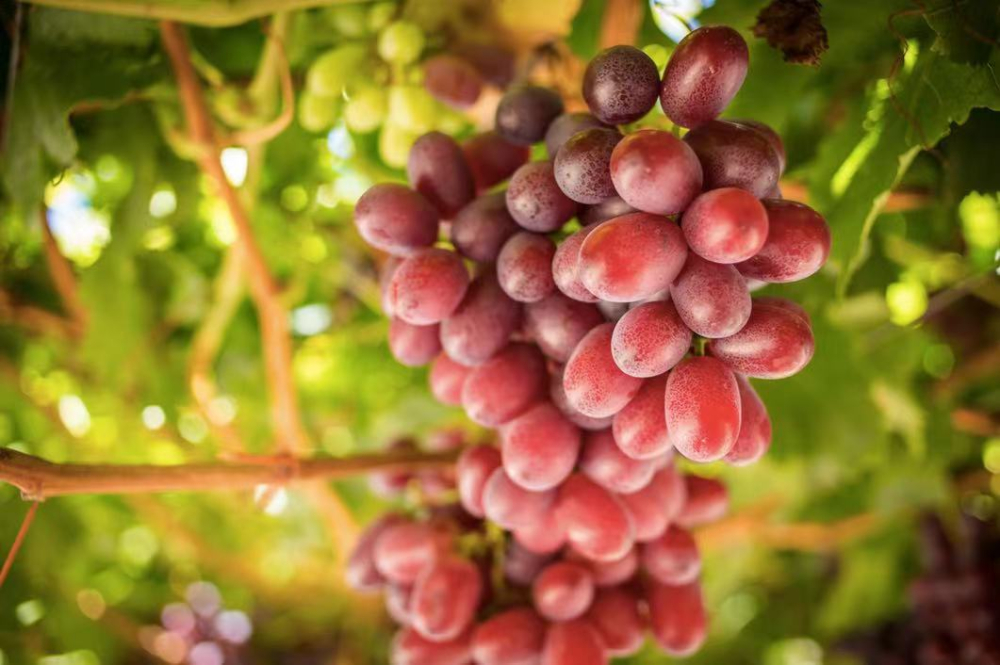Sri Lanka is on the verge of bankruptcy, "Tea for debt" Organic Agriculture Revolution aggravates the Food crisis?
Among the countries whose economies have been hit hard by the epidemic, Sri Lanka is in a particularly dire situation. The collapse of tourism revenues, a major source of foreign exchange, and the decline in remittances from overseas workers, combined with an already severe debt crisis, have increased the risk of Sri Lanka defaulting on its debt this year. According to the World Travel and Tourism Council, tourism, which typically accounts for more than 10% of the country's GDP, has lost a large number of jobs due to the epidemic, with more than 200,000 employees losing their livelihoods.

Sri Lanka's debt, including interest, reached $26 billion, and over the next five years,"without new sources of external financing, the government will have difficulty meeting its external debt obligations in 2022 and 2023," fitch ratings, one of the top three credit-rating companies, said in a december assessment. Sri Lanka is due to repay about $7.3bn of its foreign debt over the next 12 months, but central bank figures released last month showed the country had only $1.6bn in reserves at the end of November.
In order to reduce foreign exchange expenditure, the government has taken a series of measures, including strict import restrictions, which triggered a negative chain reaction. In addition, Sri Lanka's Ministry of Foreign Affairs even announced the temporary closure of its consulates in Nigeria, Germany and Cyprus on the 27th of last month to save money.
Sri Lanka opposition MP and economist Harsha de Silva recently told Parliament that from February to October 2022, Sri Lanka's total foreign debt to be repaid would be $4.8 billion: "The country will be completely bankrupt."
Food crisis in island countries
Today, as milk and all kinds of dairy products, wheat, sugar, fruits and vegetables and other basic foods are imported, with the depletion of foreign exchange, inflation, many people have been unable to pay for daily food needs.
Anushka Shanuka told the Guardian that the price of local vegetables has risen by more than 50%. Shanuka, a personal trainer, is a relatively prosperous group, but even he is struggling with life now.
For ordinary working class people. Anurudda Paranagama, a driver from Colombo, the biggest city, recently took a second job to cope with rising food costs and pay his car loan, even though the family had to cut three meals a day to two. The suburban Silva family began sipping milk for breakfast, and the milk tea on the dinner table became "sweet tea" with only a little sugar. "Our consumption patterns have now completely changed," he told Al Jazeera.
On August 31 last year, the Sri Lanka government declared a state of economic emergency, imposing price controls and rationing on 27 essential foods and mobilizing the army to ensure food supplies. But the merchants who bought these goods at higher prices refused to undersell them, and rationing ultimately did not solve the problem. It created a black market, and hoarding persisted. The government had to scrap rationing in october."Prices may rise by 37 per cent across the board, but we hope dealers don't make unconscionable profits," a trade ministry official told afp.
Predictably, several staple food prices have risen and shortages have emerged, with local food prices soaring a further 22 percent in December, a record increase, according to Sri Lanka's Bureau of Statistics.
Although Sri Lanka is an agricultural country, its agricultural economic income is mainly composed of cash crops such as tea, rubber, coconut and emerging spices in recent years. Among them, tea exports represented by Ceylon black tea generate nearly US $1.35 billion (2019) for Sri Lanka exports a year, reaching 11% of total exports.
However, in the case of food crops that feed the population, production is insufficient to guarantee food security. Although rice, the staple food of the local population, has become almost self-sufficient in recent years, the severe climate change threat faced by the island nation continues to leave food security uncertain. The country experienced its worst drought conditions at the end of 2016, while rice production dropped by 40% at the beginning of 2017. Then, heavy rains in May 2017 further deteriorated food crop production, leaving nearly 300,000 households with insufficient food supplies.
Organic Agriculture Utopia
Last May, the government of strongman populist President Gotabaya Rajapaksa launched a "green agricultural revolution" at a time of soaring prices, banning pesticides, herbicides, and chemical fertilizers for public health in favor of organic crops. The move comes from Rajapaksa's 2019 campaign pledge that "sustainable food systems are part of Sri Lanka's rich socio-cultural and economic heritage"-he said in a public speech. "However, in recent times, we have been using more and more fertilizers, pesticides and herbicides, which have adverse effects on people's health and the environment."
However, this policy, which was originally intended to promote sustainable agricultural development and promote food security, was launched at a bad time. Organic production will inevitably reduce harvests, which will aggravate the current food crisis and reduce the foreign exchange earnings that Sri Lanka urgently needs.
According to a survey last July by Colombo think tank Verité, three-quarters of farmers nationwide rely heavily on fertilizer, and only about 10 percent plant without it. Economically vital crops such as rice, rubber and tea are 90 per cent or more dependent. To force farmers to embark on organic production across the board is basically an "extreme departure" approach.
Repaying oil debt with tea
After much criticism and peasant protests, the government rescinded the policy about a month later. In fact, 100% organic agriculture has never been achieved in any country, for reasons such as high costs. In Bhutan, the organic agriculture policy introduced in 2008, which had been targeted for 2020, has not been met, and a recent study shows that the organic agriculture it introduced has significantly reduced yields, leading to increased dependence on imports.
Sabine Zikeli, a professor at the Centre for Organic Farming at the University of Hohenheim in Germany, told BBC News that a rapid transition to organic farming could threaten a country's food security: "traditional farming systems cannot simply be changed." Transition periods in organic farming often take three years or more, she says, depending on the country.
Critics say the ban was timed to halt fertilizer imports and save foreign exchange, but it ended up threatening tea production and the government had to back off. Last month, Sri Lanka reached an agreement with Iran to pay off a $250 million oil debt signed nine years ago with Ceylon black tea, a specialty of the country. According to Iranian media, Iran agreed to let Sri Lanka gradually pay off its debt by importing tea worth US $5 million per month. However, in creditor countries that are not very fond of tea, Sri Lanka may not work.
- Prev

Turning waste into earthworm manure and worm manure into organic fertilizer-A new choice for auxiliary farming
stepped into the farm in Nantou County, hidden in the covered soil, are countless earthworms capable of dealing with agricultural waste. Yang Zhikai, the founder of Earthcollecting Music, carefully shoveled the soil from the bottom up, then put it down and stirred it up, took good care of it, and carefully built the earthworm ecology.
- Next

The strongest export season of South African grapes is full of challenges, with exports to Russia falling sharply by 21%.
Recently, the South African Industry Association (SATI) said that this year may be the largest export season for the industry so far. However, due to multiple factors such as domestic and international logistics in South Africa, increased input costs and the conflict between Russia and Ukraine, this season is also one of the most challenging production seasons in the industry.
Related
- A one-day flower show brings 130 million yuan in orders! Nanhai, this Phalaenopsis exhibition is amazing
- What do the flower language and meaning of Lutheran tree mean? Precautions for planting Lutheran tree
- Encounter Chaoshan Kongfu tea, not without this cup of Phoenix single clump
- The durian market in Vietnam and Thailand is flooded. The price of imported durian has plummeted by 30-40% in a month.
- Shanghai solved the problem of local vegetable supply by planting 80,000 mu of green leafy vegetables.
- Wageningen University has become the best agricultural university in the world for the seventh time in a row.
- The strongest export season of South African grapes is full of challenges, with exports to Russia falling sharply by 21%.
- Sri Lanka is on the verge of bankruptcy, "Tea for debt" Organic Agriculture Revolution aggravates the Food crisis?
- Turning waste into earthworm manure and worm manure into organic fertilizer-A new choice for auxiliary farming
- Organic rice growers shoulder the responsibility of nurturing agricultural talents! Yinchuan Sustainable Farm with Organic Life Camp

